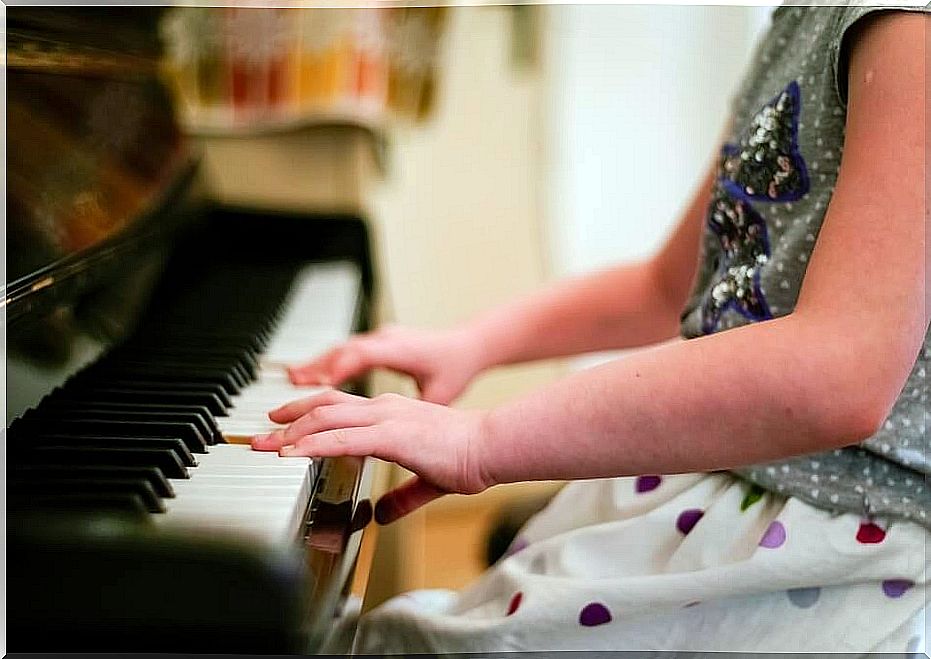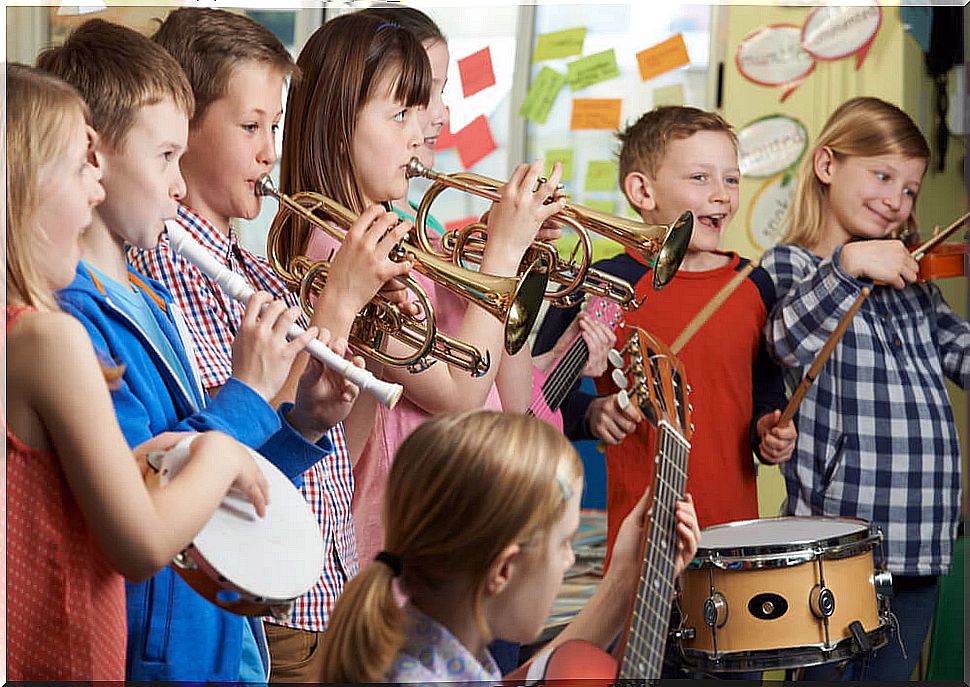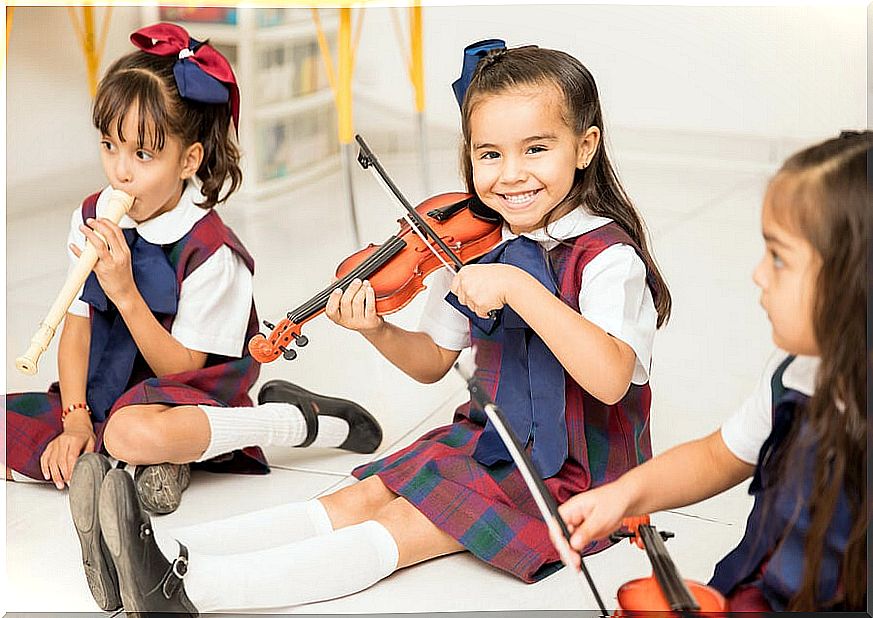Students Who Study Music Do Better In Science

There are many experts who have been interested and have studied the effects of music on learning on all those students who study music.
A recent study that has been published by the American Psychological Association (APA) assures in its conclusions that it can be shown that children and young people who play an instrument improve their performance in science. Those children who play instruments improve their performance in subjects like math, science, and English.
Students who study music or participate in music-related activities score significantly higher on science tests than their non-musician classmates. This has been demonstrated in the research of Peter Gouzouasis and his colleagues at the University of British Columbia.
Research on Academic Benefits for Students Studying Music
Research conducted by the APA included more than 110,000 high school students from British Columbia (Canada) who had started Primary between 2000 and 2003. All completed three high school courses and during this time took at least one science exam (English and math too).

Of these students, 13% participated by playing an instrument in a band or played it on their own. Among the conditions that were taken into account to consider that they practiced or studied music were these:
- Having a band of rock or jazz .
- Study piano at the conservatory.
- Participate in a choir.
The data was achieved by comparing test results related to their commitment to music. They wanted to know if practicing music was influencing in any way the performance of these students.
Study conclusion
The report has clear conclusions when relating the practice of music playing instruments and the academic results of these students:
Ultimately, what the study means in some way is that the more music a child learns, the better results he will have. This was put forward by Peter Gouzouasis, the lead author, in a paper published in Medical Express .
They also believe that some skills acquired in a band, orchestra or conservatory music classes are more useful for children and adolescents for their learning in school.

Benefits of music from children
Music can have a positive influence on children from birth. A study has also been carried out in Switzerland. This ensures that the neural networks of premature babies who listen to music adapted for them develop much better, especially with regard to sensory and cognitive functions.
Thus, the connections between the cerebral network of prominence (which allows to discern the importance of the stimuli) and the auditory, sensory-motor, frontal, thalamus and precuneus networks (that part of the brain that makes the external information with that of the senses). So much so that the organization of neural networks is very similar to that of full-term babies.
The latest discoveries about the academic benefits of music participation add to a wealth of evidence found in other studies.
Sufficiently funded school programs related to integrated arts pedagogy, nature experiences, and proper access to physical activity (outdoor play) can improve student focus, motivation and academic performance .










